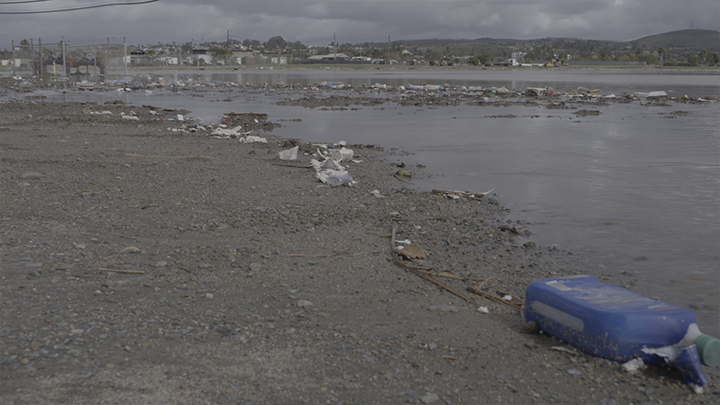SDSU gets Prebys Foundation grant to study Tijuana River pollution impacts
The funding will help SDSU’s School of Public Health launch an extensive study focused on health impacts of sewage runoff at the U.S.-Mexico border.

As part of a broader effort to tackle the pressing environmental and public health challenges posed by pollution in the Tijuana River Valley and South County beaches, The Prebys Foundation awarded a grant to San Diego State University’s School of Public Health, including those at SDSU Imperial Valley. The grant will support research to address critical gaps in understanding and monitoring of contaminants and their impacts on community health in Imperial Beach, San Ysidro and other South Bay communities.
To date, Prebys has committed $872,000 in funding to support community-based advocacy and research to advance solutions to the Tijuana sewage crisis, as part of its broader effort to enhance community well-being across the region.
University researchers have found that the Tijuana River pollution crisis presents significant risks to the economic, health and social fabric of local communities, including contagious viruses, bacteria and parasites such as COVID-19, norovirus, antibiotic-resistant microbes and harmful chemicals. Despite widespread concern about ongoing beach closures and potential health hazards to vulnerable populations such as children, pregnant women and front-line workers, comprehensive data on the transfer of contaminants from water to air, as well as the impacts of exposure to such contaminants for residents, remains limited.
Building upon previous research, SDSU’s School of Public Health conducted a comprehensive review of studies revealing evidence of elevated levels of antibiotic-resistant genes and hazardous chemicals near wastewater discharge points into the Tijuana River. This research highlighted the urgent need for broader environmental monitoring to safeguard public health effectively.
With an initial grant of $260,000 from the Prebys Foundation, SDSU’s School of Public Health will launch a communitywide health survey and environmental sampling program focused on sewage runoff at the U.S.-Mexico border. This initiative aims to both characterize the transfer of microbial and chemical pollutants from the Tijuana River water into the surrounding air of San Ysidro, and develop a community survey tool to assess the health and well-being impacts of pollution on residents.
“This grant is pivotal in advancing our understanding of how pollutants travel from water to air in the Tijuana River region,” said SDSU School of Public Health associate professor Paula Stigler Granados. ”With the support of the Prebys Foundation, we can provide crucial data necessary to help drive regulatory action and secure funding for essential upgrades to sewage treatment facilities.”
As part of the project, faculty and graduate students will leverage SDSU’s expertise in environmental health and community-based participatory research. The findings will serve as a critical resource for advocacy groups and policymakers.
“The Prebys Foundation is committed to backing SDSU’s School of Public Health as they tackle this pressing public health crisis,” said Grant Oliphant, CEO of The Prebys Foundation. “This partnership underscores our dedication to advancing research that helps to protect and enhance the health and well-being of our communities.”
Additional, Separate NIH Study Underway
The survey is just one part of research related to the Tijuana River Valley by SDSU’s School of Public Health. With support from a recent grant awarded by the National Institute of Health (NIH), public health researchers with SDSU’s HealthLINK Center will test children in Southern San Diego County for traces of exposure to sewage-related pollutants. The team will also collaborate with community health organization Casa Familiar to find ways of mitigating the impacts of the sewage crisis in lower-income communities.
"Transfer of chemicals and microbes from polluted water to air has been overlooked as a way nearby families can be exposed in their homes and communities,” Quintana said. “Our research will directly study markers of sewage wastewater and industrial waste in the Tijuana River and Estuary and in the nearby community of San Ysidro, using sensitive methods that capture the wide range of pollutants. By documenting the extent of this contamination we can help bring additional resources and solutions to this burdened border community. "
The SDSU School of Public Health is also part of a task force dedicated to assessing the scope of negative health impacts associated with the sewage crisis. The task force is led by Imperial Beach Mayor Paloma Aguirre and includes collaboration from researchers at the University of California, San Diego and other local agencies.



